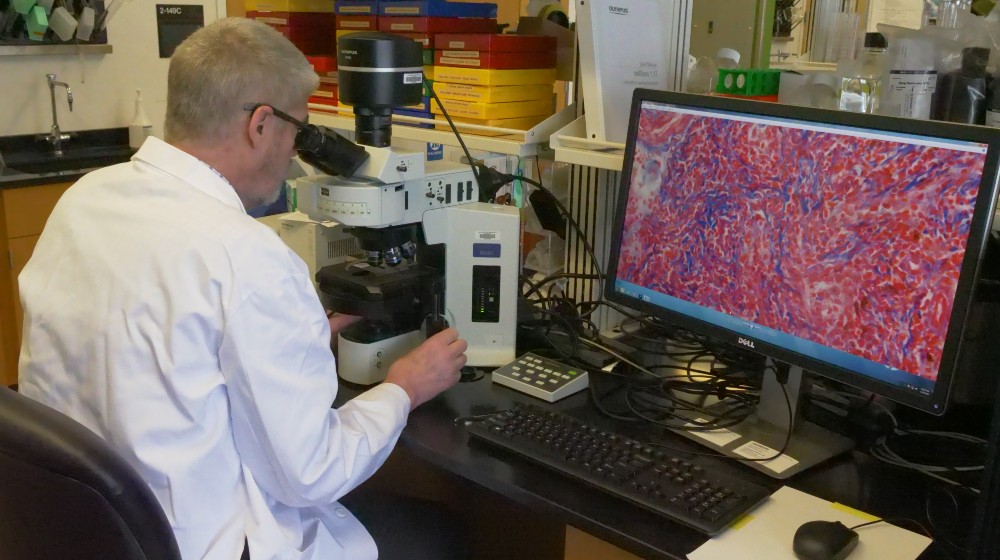About UMIID
Mission
To create innovative solutions to emerging infections with epidemic or pandemic potential
The University of Minnesota Institute on Infectious Diseases (UMIID) was established in 2022 at the University of Minnesota Medical School as the intersection for all areas of infectious disease research at the University.
Goals
- Research diseases of pandemic and epidemic potential through collaboration among the University’s basic, clinical, and translational experts
- Provide training opportunities for physician scientists
- Partner with industry for scientific collaboration
- Translate scientific outcomes to the people of Minnesota
Diversity Statement
The University of Minnesota Institute on Infectious Diseases (UMIID) commits to centering diversity, equity and inclusion in all aspects of our work. We commit to demonstrating courageous leadership in structural change, both in the field of infectious disease research and in academia more broadly, so that we can disrupt the systemic barriers that have currently and historically marginalized underrepresented individuals in the field. To begin we will do this by acknowledging and accepting responsibility for these barriers that allow the disparities and inequities to flourish.
UMIID will seek to develop relationships with cultural humility and collaborate with impacted communities in the planning of activities, in program dissemination, and in outcome evaluation. We will work to build a welcoming environment for scholars who represent our state and who have been systematically excluded and underrepresented, including but not limited to BIPOC individuals, immigrants, international students and scholars, women, LGBTQIA2S+, DREAMers, people with disabilities, first-generation college students, individuals from low socio-economic status, and those who are at the intersection of two or more of these identities. We will do this, so they may fully engage in all aspects of the institute, pursue academic careers in their chosen field of study in healthy and productive spaces and have their needed voices and perspectives elevated. We will also actively develop training for a diverse professional staff workforce to join us in these pursuits.
We commit to advocating where we can, to speaking up against all types of oppression and abuse of power such as racism, sexism, and discrimination. We commit to pursuing research and outreach that provides more equitable access to infectious disease treatment and prevention. We pledge to engage in regular training and awareness on these issues and establish accountability of these efforts. We pledge to regularly seek input from marginalized communities to provide feedback on what we can do better and what efforts should be amplified. Our aspirations for inclusion is that we create work and scholarly environments where all belong and feel they have robust support. Finally, we commit to be tireless in our efforts to both address systemic barriers, while also creating an environment that welcomes, supports, and celebrates the differences within our community.
Land Acknowledgement
We acknowledge that the University of Minnesota Twin Cities is built on the traditional homelands of the Wahpekute, Anishinabewaki, and Očeti Šakówiŋ (Sioux) Nations. We further acknowledge that it was through the United States government’s failure to uphold the treaties of 1805, 1837, and 1851 with the Wahpekute (Dakota) people that allowed the University of Minnesota to be founded under the Morrill Land Grant Act. Moreover, these actions denied native people access to their land and the fundamental human right of self-determination. The Institute on Infectious Diseases recognizes that from the first days of European colonization through today, Native American populations remain one of the most disparately impacted populations by infectious disease. We are committed to addressing this disparity through partnership with Native American communities, and through the leadership of colleagues in the Medical School such as the Center of American Indian and Minority Health.
We acknowledge the Native Governance Center for guidance in drafting this Land Acknowledgement statement and as a resource for indigenous nations.
